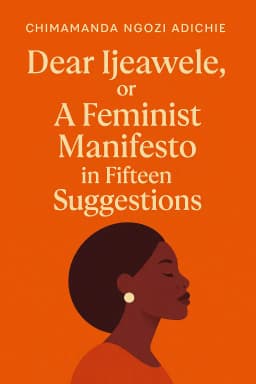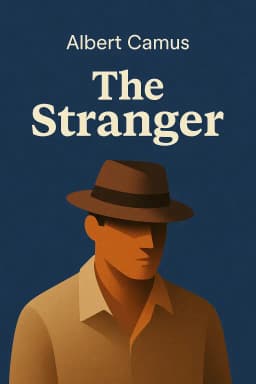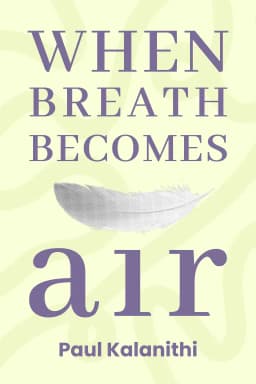
The Wisdom of Being Foolish
Golden Hook & Introduction
SECTION
Michael: Alright Kevin, quick—if you had to describe the 16th-century Catholic Church in one word, what would it be? Kevin: Oof. 'Complicated'? 'Rich'? How about 'Needs-a-good-therapist'? Michael: Erasmus's word was 'Foolish.' And he wrote a whole book about it, from the perspective of Folly herself. Today, we're diving into one of the most brilliant and dangerous books of the Renaissance: In Praise of Folly by Desiderius Erasmus. Kevin: A book praising foolishness? That feels like it goes against… well, everything we’re ever taught. Michael: Exactly. And what's amazing is that he wrote this masterpiece in about a week while sick in bed at his friend Sir Thomas More's house. The title itself is a brilliant pun—in Greek, Moriae Encomium sounds like 'In Praise of Folly,' but 'Moriae' is also a nod to his friend, More. Kevin: Hold on. A sick-bed roast of all of society, dedicated to his best friend? I love it already. So where does he even begin with an idea like that? Michael: He starts with the most provocative claim imaginable. He has the goddess Folly step onto a stage and declare that she, not wisdom, is the one who makes the world go 'round. She argues you can't fall in love, have friends, or even want to live without being a little bit foolish. Kevin: Okay, but that sounds like delusion, not happiness. Isn't it better to face reality, however harsh it is? Michael: Folly would say your 'reality' is completely overrated! She argues that life is a kind of play, and wisdom is the spoilsport in the audience who stands up and starts pointing out that the king is just an actor and his crown is fake. Wisdom ruins the show for everyone. Folly, on the other hand, keeps the illusion going so we can all enjoy it.
The Unsung Hero: Why Folly is Essential for Happiness
SECTION
Kevin: Wow. So Folly is like the ultimate hype-man for humanity, telling us everything's fine even when it's not. Michael: Precisely. And she gives some incredible examples. Take procreation. Folly asks, what 'wise' man, after logically calculating the pains of childbirth, the hassle of raising a child, and the inevitable heartbreaks, would ever decide to have one? Kevin: Yeah, if you put it all in a spreadsheet, the answer is probably 'don't do it.' Michael: Exactly. Folly calls it a "sportive and tickling recreation." It's an act of pure, unthinking impulse. An act of folly. Without her, humanity would die out. She claims she is literally the source of all life. Kevin: That’s a bold claim. What about after we’re born? What about our relationships? Michael: She argues they're even more dependent on her. Think about marriage. Can you imagine a marriage where both partners are brutally honest about every single flaw, every annoying habit, every single day? Kevin: That sounds less like a marriage and more like a permanent performance review. A terrible one. Michael: It would be a nightmare. Folly says she provides the necessary glue: flattery, self-deception, the ability to overlook faults. You convince yourself your partner is the best, they convince themselves of the same, and you both happily ignore the mounting pile of laundry. That's Folly at work, creating harmony. Kevin: It’s kind of like Folly is the Instagram filter for reality. It smooths out the rough edges and makes everything look a little better than it actually is. Michael: That’s a perfect analogy. And she argues this becomes even more crucial as we age. She brings up the old proverb, "Once an old man, and twice a child." Folly claims she is the one who brings this gift to the elderly. Kevin: A gift? Most people see that as a sad decline. Michael: Folly reframes it completely. She says she erases the anxieties and painful memories of a long life, returning old people to a state of carefree, childlike bliss. They are free from the burdens that plague the 'wise' middle-aged man. She quotes the playwright Sophocles: "To know nothing is the sweetest life." For Folly, ignorance isn't just bliss; it's a mercy. Kevin: Huh. I’ve never thought of it that way. She’s making a case that a life without her would be logical, clear, and utterly miserable. Michael: Unbearable. A wise man sees all the world's suffering, all of his own inadequacies, all the certainty of death. A fool, on the other hand, is happy. He builds castles in the air, tells himself he's handsome and brilliant, and enjoys his life. Folly’s question is simple: who would you rather be? Kevin: Honestly, that sounds like my Monday mornings. A little bit of self-delusion is the only thing that gets me out of bed. Michael: Folly would say that’s her, whispering in your ear.
The Emperor Has No Clothes: Folly's Takedown of the 'Wise' and Powerful
SECTION
Kevin: Okay, I can definitely see the argument for personal happiness. It’s a radical form of self-care. But this book got Erasmus in a lot of trouble. It wasn't just about feeling good, was it? Michael: Not at all. That was just the warm-up act. The main event is Folly turning her satirical blowtorch on the most powerful people in Europe. Once she establishes that being a fool is natural and good, she then points to the so-called 'wise' and shows them to be the most ridiculous fools of all. Kevin: Ah, so this is where the roast begins. Who's first in the firing line? Michael: The academics and theologians. He has Folly mock them mercilessly for their pride. She describes them as men who spend their lives debating utterly pointless questions. Things like, could God have chosen to manifest as a cucumber instead of a man? Or calculating the exact time it took to create the universe down to the second. Kevin: That sounds a lot like some corners of the internet today, arguing about meaningless trivia. Michael: Exactly. Folly’s point is that these men are so lost in their own intellectual vanity that they’ve completely missed the simple, core truths of life and faith. They build these elaborate, fragile structures of logic and look down on everyone else, while Folly just laughs at them. Kevin: And I imagine she doesn't stop with the scholars. Michael: Oh, no. She goes right for the heart of power: the Church itself. She paints a picture of monks and friars who are obsessed with the exact length of their robes, the number of knots in their belts, and the precise way to say their prayers. They follow thousands of tiny rules, believing this makes them holy. Kevin: They’re focused on the performance of piety, not the substance. Michael: That's the core of her critique. She says they are just actors, and worse, they use their authority to terrify common people with talk of hellfire and purgatory, all while living lives of comfort and hypocrisy. Remember, this is just before the Protestant Reformation. Martin Luther would nail his theses to the church door just a few years after this book was published. Erasmus was laying the groundwork. Kevin: This is basically a 16th-century version of a viral Twitter thread, right? Just exposing powerful people for their hypocrisy. It must have been incredibly dangerous. Michael: It was walking on a razor's edge. But the genius of the book is that he uses Folly as his shield. It’s not him saying these things; it’s the goddess of foolishness! How can you get mad at a fool? It gave him plausible deniability. But everyone knew exactly who he was talking about. The book was eventually placed on the Catholic Church's index of forbidden books because it hit way too close to home. Kevin: So he even goes after kings and princes? Michael: Absolutely. Folly claims them as her own special children. She points out that rulers surround themselves with flatterers—her disciples—who tell them what they want to hear. They dress in purple and gold, demand constant praise, and believe they are above the common person, all while neglecting their actual duty to serve their people. In Folly's eyes, the person weighed down by a heavy crown is the biggest fool in the kingdom.
Synthesis & Takeaways
SECTION
Michael: So you have this incredible dual argument running through the whole book. On one hand, folly is this gentle, necessary illusion that makes our personal lives worth living. It’s the source of love, friendship, and joy. Kevin: It’s the software that lets us run the hardware of being human without crashing. Michael: That’s a great way to put it. But on the other hand, Erasmus argues that the worst kind of folly, the most dangerous kind, is the pride of the 'wise'—the theologians, the kings, the scholars—who refuse to admit they're fools just like everyone else. Theirs is a destructive, arrogant foolishness. Kevin: The foolishness of people who think they're not foolish. Michael: Exactly. The book is a celebration of the humble fool and a condemnation of the proud one. It’s a call for a little less certainty and a little more self-awareness. He’s not just trying to be funny; he’s a humanist trying to reform the Church and society from within, using wit as his tool. Kevin: It really makes you wonder, where in our own lives are we being the 'wise fool'—so sure of our own intelligence or righteousness that we completely miss the point? Michael: That's the question Erasmus leaves us with. It's a 500-year-old challenge to be a little more humble, a little more forgiving of others, and a little more joyful in our own necessary foolishness. It’s a reminder that sometimes, the wisest thing you can do is admit you don’t have all the answers. Kevin: I think that’s a lesson that’s more relevant now than ever. We'd love to hear what you think. What's a little bit of 'folly' that makes your life better? Let us know. Michael: This is Aibrary, signing off.









